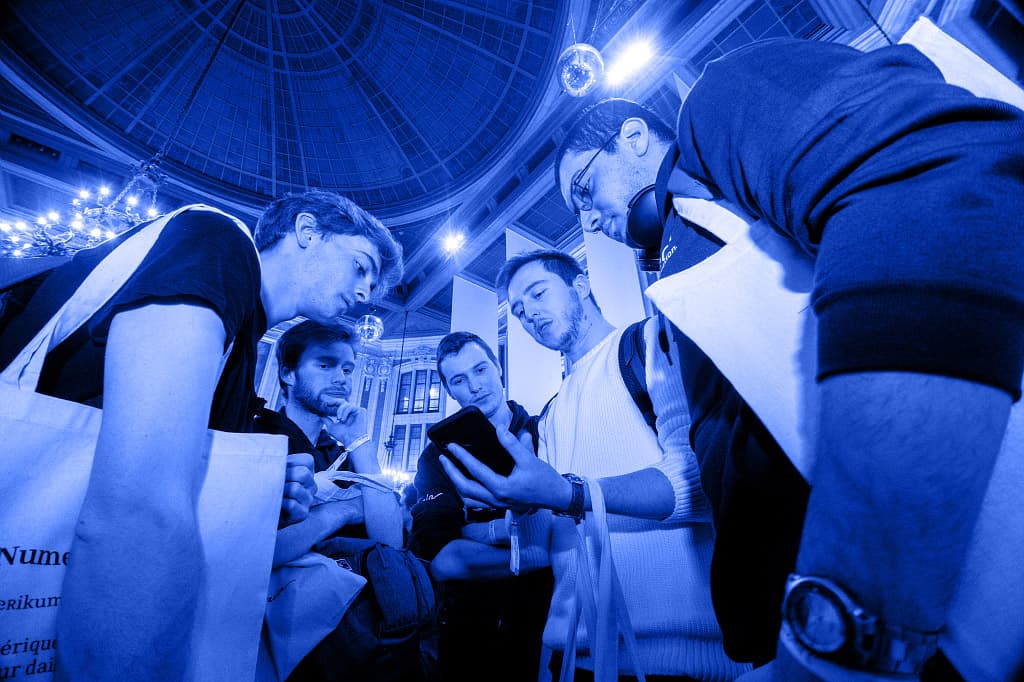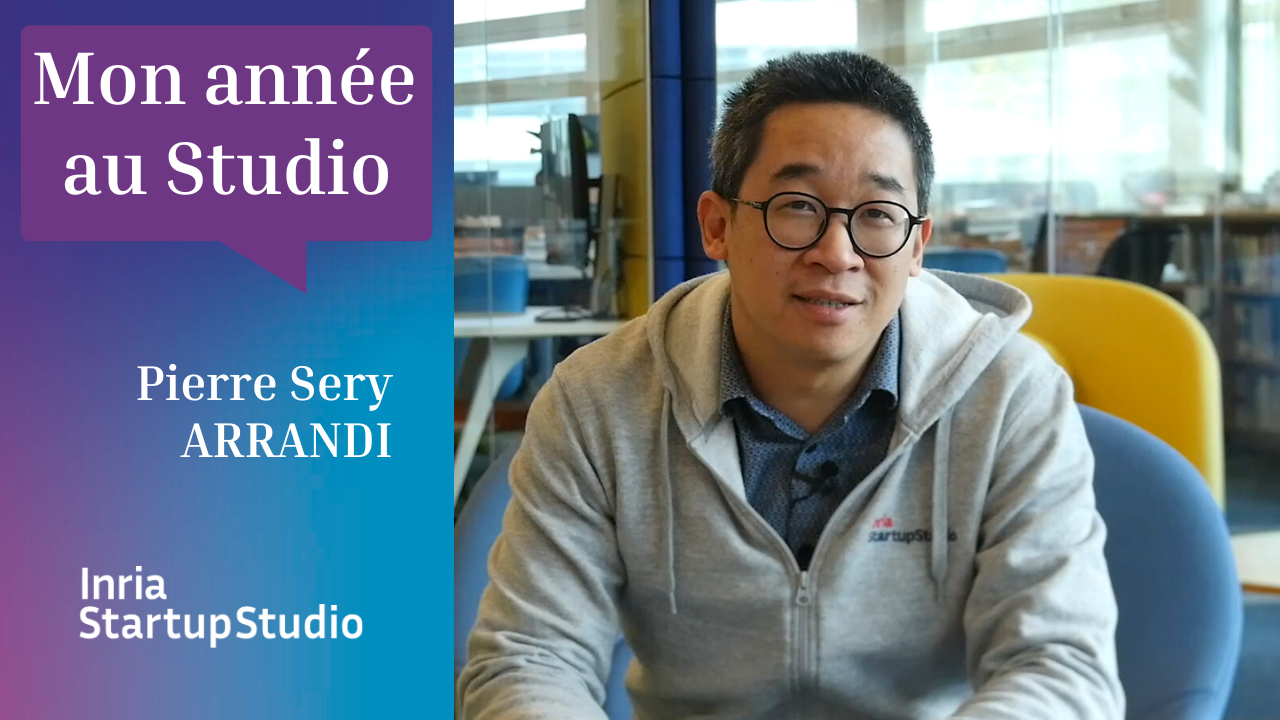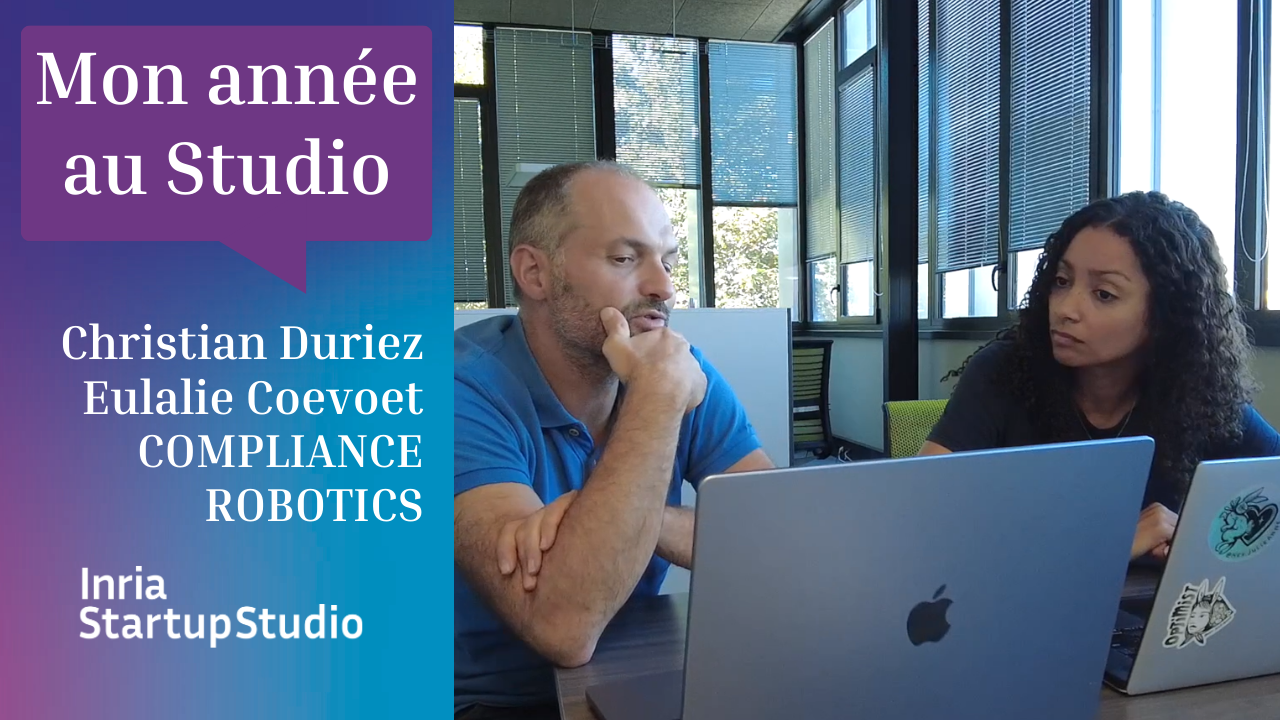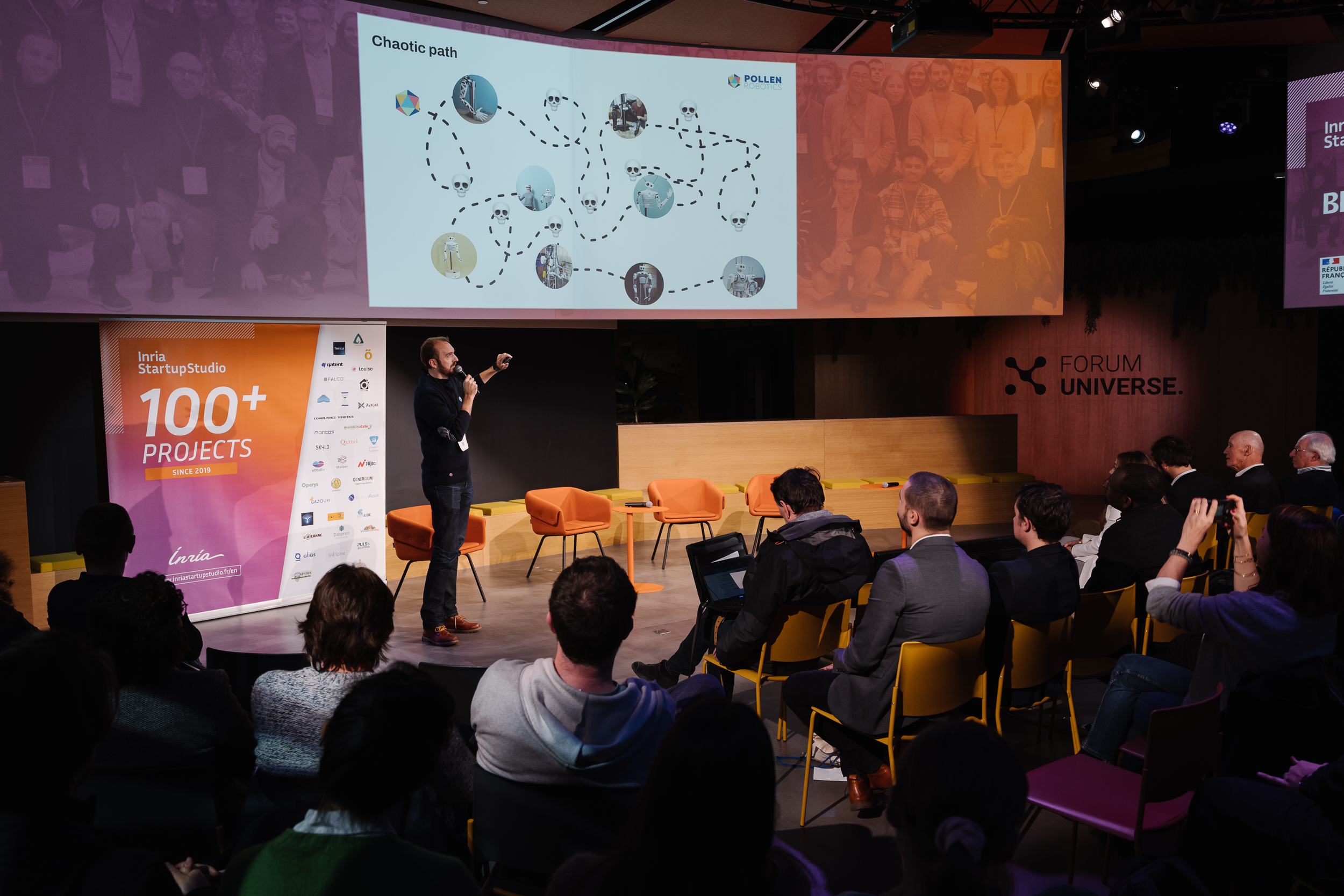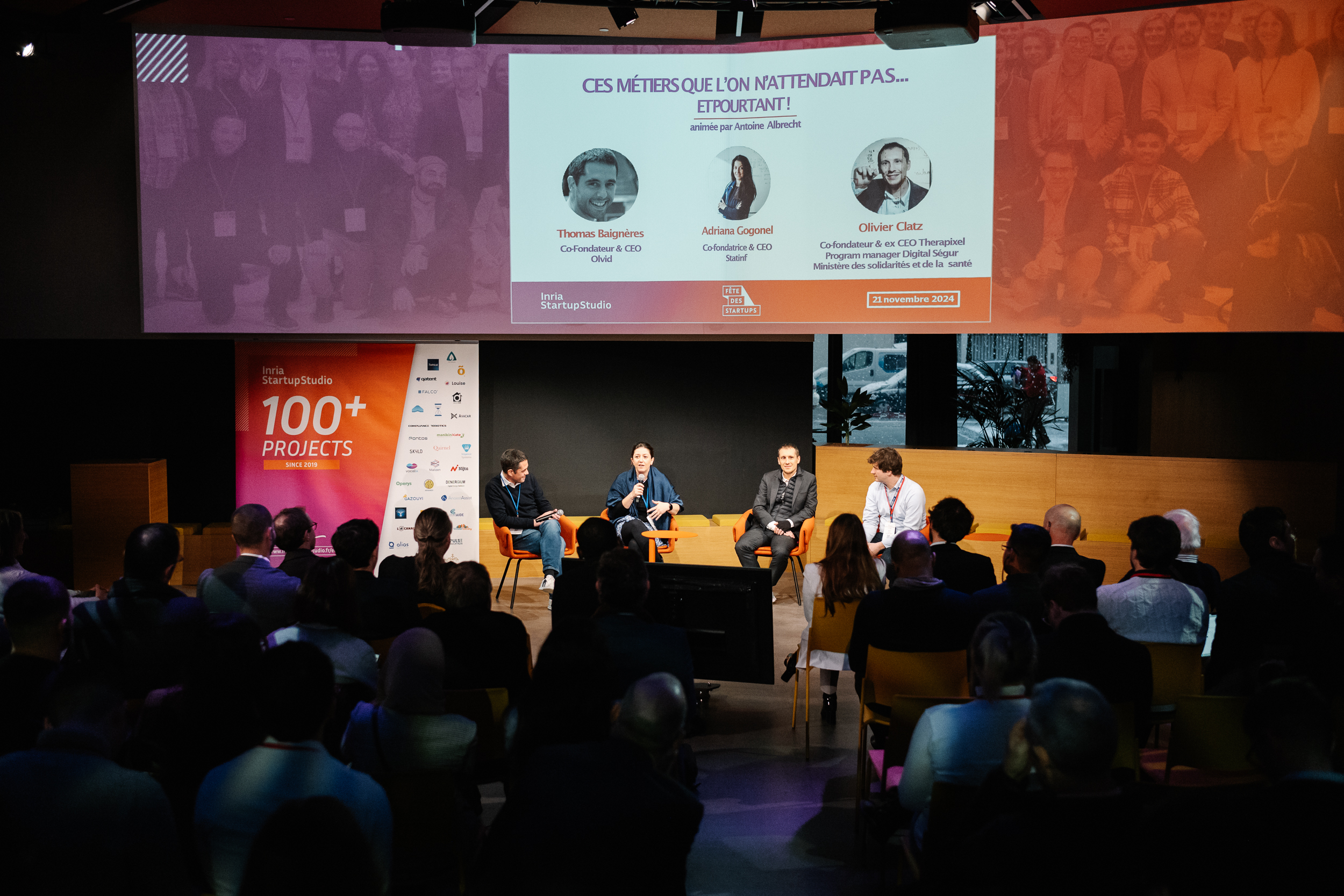
Entrepreneurship, a real change of profession for a researcher
On the occasion of the Fête des startups 2024 organized by Inria Startup Studio, three entrepreneurs looked back on their career paths and talked about their daily lives, which are far removed from what they imagined when they were still young PhD students. With Adriana Gogonel, CEO of Statinf, Thomas…
On the occasion of the Fête des startups 2024 organized by Inria Startup Studio, three entrepreneurs looked back on their career paths and talked about their daily lives, which are far removed from what they imagined when they were still young PhD students. With Adriana Gogonel, CEO of Statinf, Thomas Baignères, CEO of Olvid, and Olivier Clatz (Program manager Digital Segur).
“When I was a student, I knew I wouldn’t do a thesis. When I did a thesis, I knew I’d be doing research. That didn’t happen, and I went to a big company. I never thought I’d work in a start-up, which I did six months later, let alone launch one, because it seemed so complicated at the time!” says Thomas Baignères, CEO of Olvid, a French encrypted messaging application. Although he admits to a lack of foresight in his forecasts, he takes a clear-eyed look at the path taken by many researchers when they set up their own company: a leap into the unknown for which they were not prepared, and which forces them to learn new skills on the job, from marketing to sales, accounting, legal affairs or HR. “You have to know how to surround yourself with people, because in the end, all these areas are just as important as tech itself for the development of your company”, warns the entrepreneur, who admits to having had a revelation about the importance of marketing, which includes understanding customer needs as much as developing his company’s reputation.
Research, not always essential to a startup’s success
“At first, anything that wasn’t technology-related was secretarial work for me! But very quickly, I had to get help, if only to keep the accounts”, says Adriana Gogonel, CEO of Statinf, a solution for analyzing the execution time of embedded programs, which mainly targets aerospace and automotive manufacturers. “Here too, there’s a difference between developing an academic prototype and a real product that meets customer expectations. Then comes the marketing phase, or the search for investors… Each time, we surround ourselves with new profiles to free up time and get back to research, but each time, the company’s development forces us to put on a new hat.”
Olivier Clatz also played a number of different roles before recently returning to entrepreneurship: as a researcher at Inria, he founded Therapixel, a software company specializing in AI and medical imaging, before joining the Secrétariat Général pour l’Investissement, then creating and managing a digital investment program attached to the Ségur de la Santé. His advice: “Don’t always try to be the best researcher. It often doesn’t make any difference on the day you set up your company, because it’s not about being the best researcher, it’s about your ability to be curious and get to grips with all these ancillary subjects. So much so that today, as I return to entrepreneurship, it’s at the technology level that I feel least legitimate…” Here again, the key for him is to surround himself with the right people, although he warns: “When I’m recruiting, I prefer people who are very committed to their work to those who are overqualified. But you mustn’t forget that part of the solution must also come from you, and your ability to overcome obstacles on your own when faced with them!”.
This advice is shared by Thomas Baignères, who believes that the thesis teaches researchers to take up these kinds of challenges: “You really shouldn’t teach doctoral students about entrepreneurship. Let them devote themselves to their research! Once they’ve launched their start-up, they’ll learn on the job and quickly understand their mistakes and how to fix them.” And if all the speakers report a certain weariness inherent in the role of entrepreneur, and sometimes regret not being able to devote themselves to research, it seems that the key is to find satisfaction elsewhere, as Thomas Baignères explains: “It’s when I saw someone arrive in my teams who had the idea that I hadn’t had, and I was very happy about it, that I understood that I really belonged. Bringing together a team that’s looking in the same direction, and that can move forward, even without you, I think that’s a great feeling!”
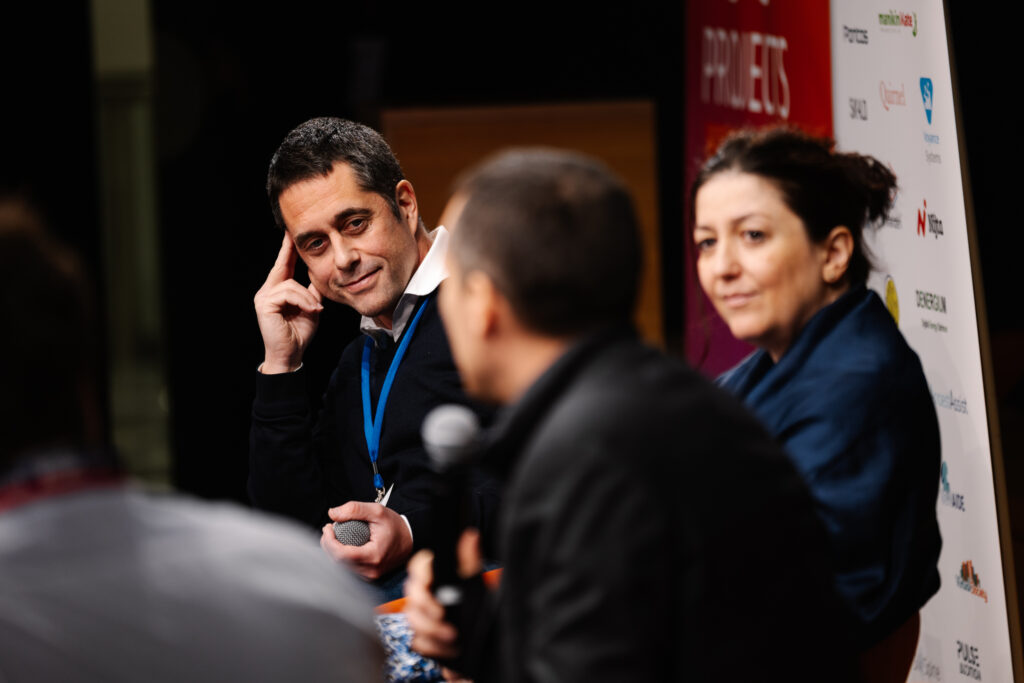
Publication date: 10/02/2025
Want to get started ?
